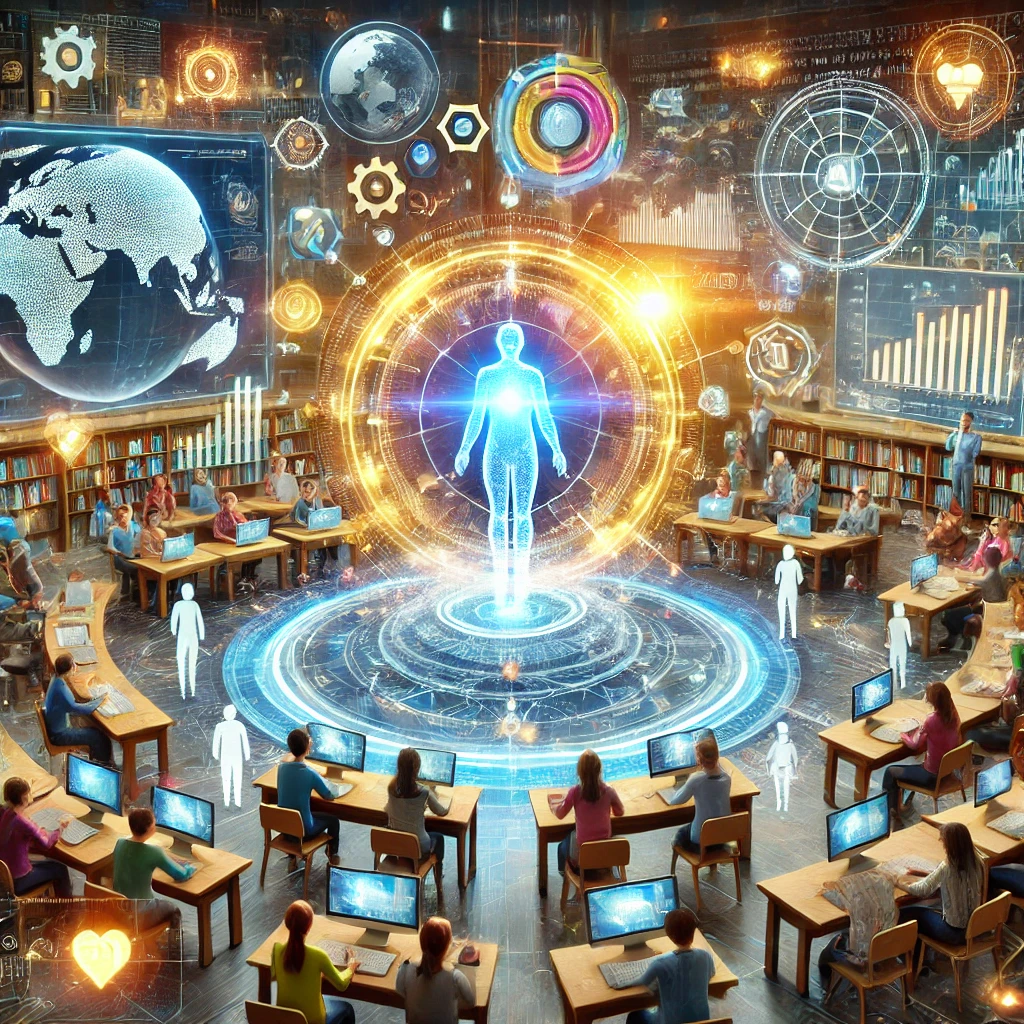✍The Future of Education: AI's Role in Personalized Learning✍
AI is reshaping education, shifting it from a one-size-fits-all approach to a personalized, student-centered experience. But what does this mean for students, teachers, and the learning process? Let’s explore how AI is redefining the classroom.
✍What is Personalized Learning?✍
Personalized learning adapts the teaching process to individual needs, ensuring every student learns at their own pace and in their preferred style. Traditionally, this required extra resources and attention from teachers. But AI is changing the game by automating and optimizing personalization at scale.
✍How AI is Revolutionizing Personalized Learning✍
- Customized Lesson PlansAI-powered platforms like Duolingo and Khan Academy analyze student performance in real-time, identifying gaps in knowledge and adjusting lessons accordingly.
- Struggling with fractions? AI will provide simpler examples and step-by-step guides.
- Mastered a concept? It’ll challenge you with more advanced problems.💡 Think About It: Have you used a learning app that felt like it was reading your mind? Share your experience!
- Smart Tutoring SystemsAI tutors, such as ChatGPT and other conversational AI, are available 24/7 to answer questions, provide explanations, and even offer feedback on essays. They make learning accessible anytime, anywhere.🔍 Fun Fact: Did you know AI tutors can already mimic human-like conversations to make learning more engaging?
- Learning Analytics and InsightsAI doesn’t just help students—it supports teachers too. Advanced analytics tools track student progress, highlight areas of difficulty, and suggest interventions. This allows teachers to focus their energy where it’s needed most.
- Engagement Through GamificationAI integrates gamification into learning, making it fun and interactive. By using quizzes, rewards, and leaderboards, students stay motivated while mastering complex topics.
- Breaking Language BarriersWith AI-driven translation and language-learning tools, students can access resources in any language. This opens up educational opportunities for learners in non-English-speaking countries.🌍 Quick Thought: How do you think AI could make education more inclusive globally?
✍Challenges and Ethical Considerations✍
While AI holds immense promise, it’s not without challenges:
- Data Privacy: With AI collecting vast amounts of student data, ensuring privacy and security is critical.
- Teacher Roles: As AI takes over certain tasks, educators worry about their changing roles in the classroom.
- Access and Equity: Not every student has access to the technology required for AI-powered education, potentially widening the digital divide.
💭 Your Opinion: Should AI complement teachers or eventually replace certain aspects of teaching? Let’s discuss in the comments!
✍The Future of AI in Education✍
The road ahead is filled with possibilities:
- Virtual Reality (VR) Integration: Imagine history lessons where students explore ancient civilizations using AI-driven VR simulations.
- Emotional AI: Future AI systems may detect student emotions, offering support when frustration or disengagement is detected.
- Lifelong Learning: AI could create personalized learning paths for professionals, ensuring they stay updated in rapidly evolving industries.
✍What Do You Think?✍
As AI continues to transform education, one thing is clear: the future is bright, but it’s up to us to guide its development responsibly.
- How do you see AI shaping the future of learning?
- Do you think AI can replace traditional teaching methods, or should it work alongside educators?
Let’s spark a conversation about the future of education! Share your thoughts in the comments below.






.jpg)


.png)

No comments:
Post a Comment